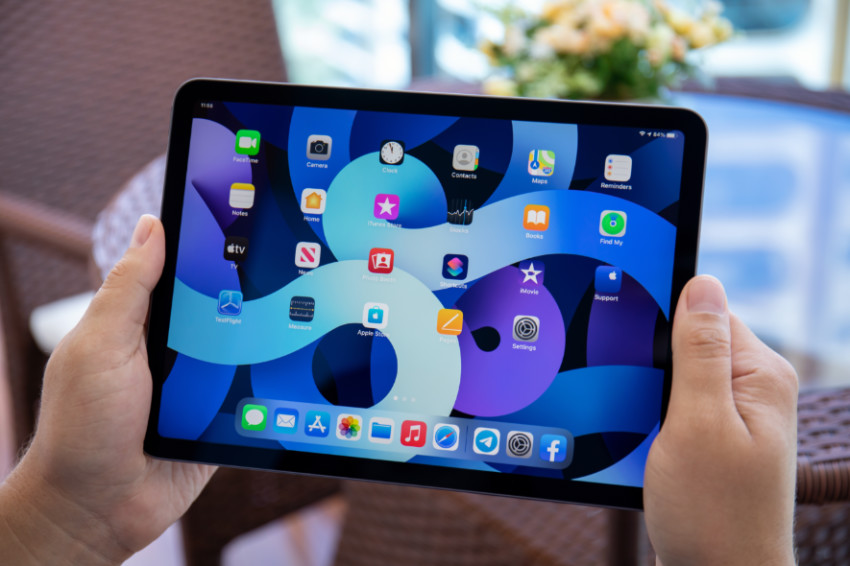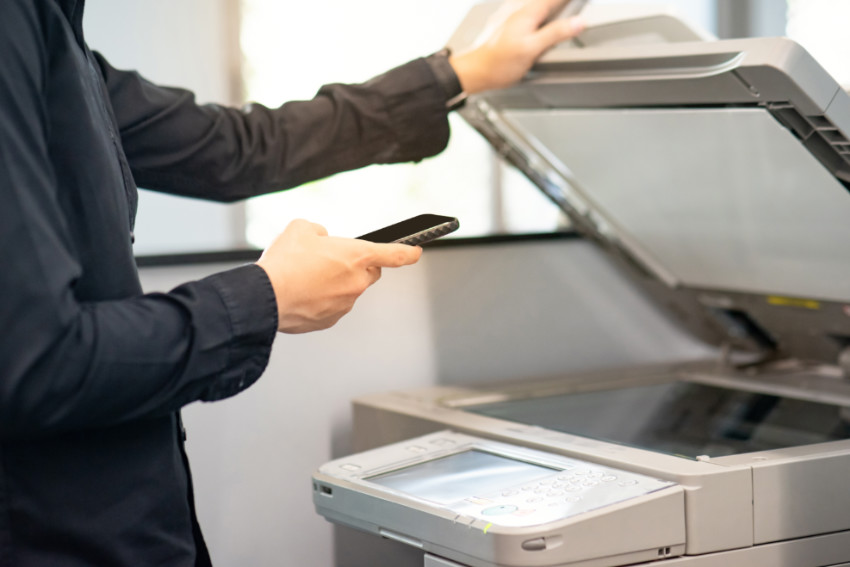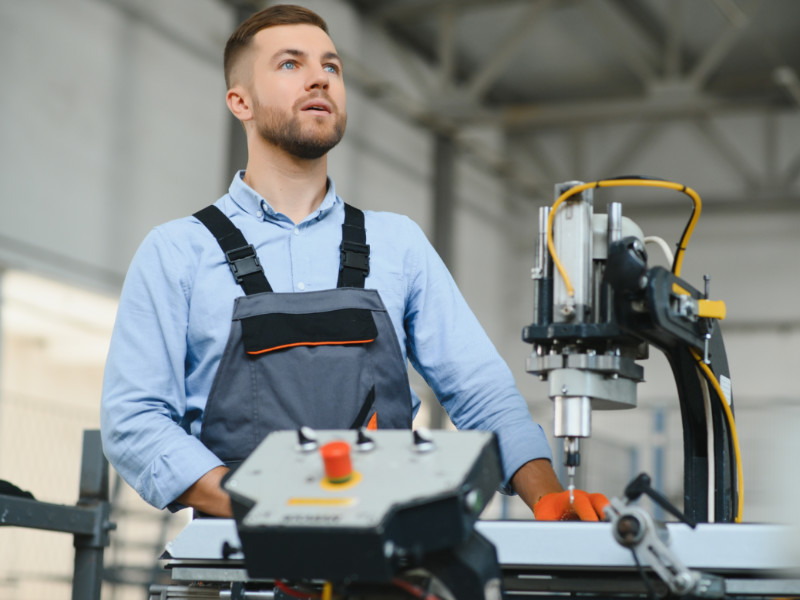It’s not too hard or particularly expensive to get hardware for your office these days. Devices are more portable and lighter than ever, offering a lot of versatility in the way you approach this investment.
One of the great advantages of available technology is that even a single laptop is enough to do almost everything, even if you start working in remote offices. The flexibility of laptops and tablets give you the freedom to be mobile while keeping your productivity.
But even though the options are quite obvious, there are a few important points worth noting when it comes to the finer details.
1. A reliable laptop

Expect to pay: $500 to $1000
There’s a lot to consider when deciding what laptop to invest in, so let’s start with what kind you’re looking for – that will greatly affect how much you can expect to pay.
For example, if you’re looking for nothing more than a machine to use the internet and write estimates, you can find a Chromebook for less than $200. It enables you to access and edit documents using Google services, as well as basic Android-based apps and other online services.
However, this option does not support Windows. It’s mostly linked to Android apps and its capabilities are limited. Installing programs like Word and Excel, as well as other more demanding pieces of software like Photoshop or AutoCAD, is out of the question.
You can expect more reliable Windows laptops to be within the $500 to $800 range.
These are the typical machines you’re probably more used to. Windows is a highly compatible OS that you can use for everything, but you should mind the specs of your chosen laptop.
There’s a lot to break down, so I’ll try to offer the extremely short version of what you should ideally be looking for:
- An Intel Core i5 processor or better. Avoid anything with just an “Intel Celeron” processor.
- At least 4GB of RAM, preferably 8GB.
- An SSD is vastly better than an HDD. SSD storage options are more expensive and smaller, but performance is considerably better than HDDs. Many laptops on the market today offer both, allowing you to install the OS in the SSD for optimal performance, but keep the HDD for more comfortable storage space.
- An IPS display is preferable for better color contrast and image quality
- You don’t have to worry about a specific graphics card too much unless you intend on using graphic intensive stuff like Photoshop, 3D modeling software, advanced video editing, or playing videogames.
Finally, you can always opt for a MacBook, which means you don’t have to worry about diving into all these specs and can instead just pick the model that better suits your needs.
The downside is that for a MacBook, you can’t expect to pay less than $1000. On the other hand, MacBooks are reliable by nature and highly recommended for work. The software is built to run on the hardware you buy, meaning you should not have any problems when it comes to performance at all.
2. A good tablet

Expect to pay: $400 to $800
Tablets can be incredible additions to your productivity. They are often used as an extension for when you leave the office but still need to bring a reliable device with you. It has access to the internet, documents, camera, video calls, and more – pretty much everything a laptop can do, a tablet also can, but also with the benefit of being more portable.
In fact, these devices are so powerful that many are replacing laptops with tablets. Either an iPad or Samsung Galaxy Tab will cost you around $500 and with the help of a Bluetooth keyboard, can easily serve as a laptop no matter where you take it.
3. A smartphone exclusive for work

Expect to pay: $200 to $400
There’s not much to say about smartphones you don’t already know, but one common mistake many contractors make early on is to use their personal smartphones for work. While this is convenient at first, it quickly becomes anything but.
Having a separate phone for work is ideal because that’s a phone you can easily turn off or put away when you’re not working. The last thing you want is to continuously receive work calls, emails, messages, and spam on your personal phone.
4. A wireless printer

Except to pay: $100 to $200
When it comes to office organization, paper is pretty much obsolete at this point. You can even scan documents by simply using your phone’s camera, which makes it even easier.
However, it’s common for contractors to deliver documents in person. This could be a written contract for a client to read and sign, copies of legal documents for permits, or simply prints of layouts and blueprints needed for work. This is where having your own printers comes in handy.
Offering a paper copy of price estimates to future clients also makes your business look more reliable than just sending it online.
5. The best chair you can afford

Except to pay: $100 to $200
Time and time again we return to this point: your office needs a good chair.
While it’s true that many contractor jobs are out of the office, that doesn’t negate the importance of having a comfortable chair waiting for you behind the desk. Perhaps, the physical nature of a contractor’s line of work only further exacerbates the need for comfort.
You will inevitably find yourself working in front of the computer for hours every week, so give your back a break. It really makes a huge difference and relieves your back from future problems.
Take the first step towards growing your business today and start receiving leads that will make you money. — Sign up with homeyou!




Comments